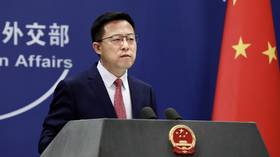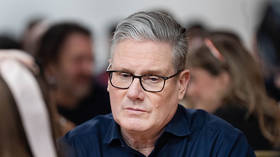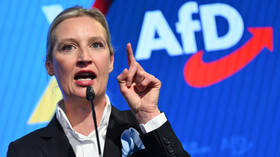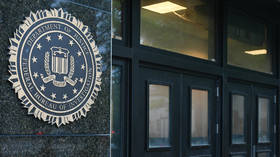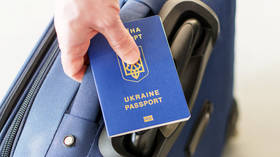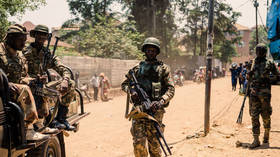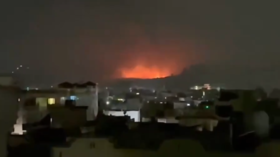NATO accuses China of issuing 'challenge'
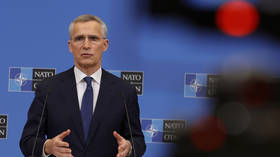
NATO Secretary General Jens Stoltenberg has declared that by being “unwilling to condemn Russia’s aggression,” China has issued a challenge to the Cold War-era alliance. Beijing has remained neutral on the conflict in Ukraine, but has accused NATO of fomenting the crisis by expanding into Eastern Europe.
“We have seen that China is unwilling to condemn Russia’s aggression, and Beijing has joined Moscow in questioning the right of nations to choose their own path,” Stoltenberg told reporters in Brussels on Thursday, following a meeting of NATO foreign ministers, along with Ukrainian Foreign Minister Dmitry Kuleba and officials from Australia, Japan, New Zealand, and South Korea.
“This is a serious challenge to us all,” Stoltenberg added. “It makes it even more important that we stand together.”
China has repeatedly called for a diplomatic end to the war in Ukraine, but has not joined Western powers in sanctioning Moscow, and has continued to trade with its Eurasian neighbor.
The Chinese government has not responded well to what it termed “lectures” by the alliance’s leaders, such as when Stoltenberg called on Beijing last month to “live up to its responsibilities as a member of the UN Security Council” and “refrain from supporting Russia’s war effort.”
With Stoltenberg demanding China condemn Russia, the Chinese Foreign Ministry refused, citing NATO’s deadly bombing of the Chinese embassy in Belgrade, Serbia in 1999 as one reason it won’t listen to a “lecture on justice from the abuser of international law.” China’s leaders have likewise been unmoved by threats of sanctions from the US and the EU.
Amid this impasse, Stoltenberg on Thursday threatened a more militant approach to dealing with Beijing. “NATO and our Asia-Pacific partners have now agreed to step up our practical and political cooperation in several areas, including cyber, new technology, and countering disinformation.”
The NATO chief has previously accused China of supporting Russia’s war effort with “lies and misinformation,” likely a reference to Beijing joining Russia in questioning US-funded biological lab activity in Ukraine. US officials have denied claims that Ukrainian research labs were working on biological weapons, despite documents published by Russia suggesting otherwise. However, American officials have confirmed the labs’ existence, and emails suggest the Biden family was involved in their funding.
“We will also work more closely together in other areas,” Stoltenberg continued, “including maritime security, climate change, and resilience.”
Stoltenberg is not the only Western leader with visions of gathering allies to oppose China in the Pacific. Separate from the cooperation he spoke about on Thursday, the US, the UK, and Australia unveiled their ‘AUKUS’ alliance last September. China’s Foreign Ministry has described the three-way alliance as an attempt to build an “Asia-Pacific version of NATO” that is “doomed to fail.”
